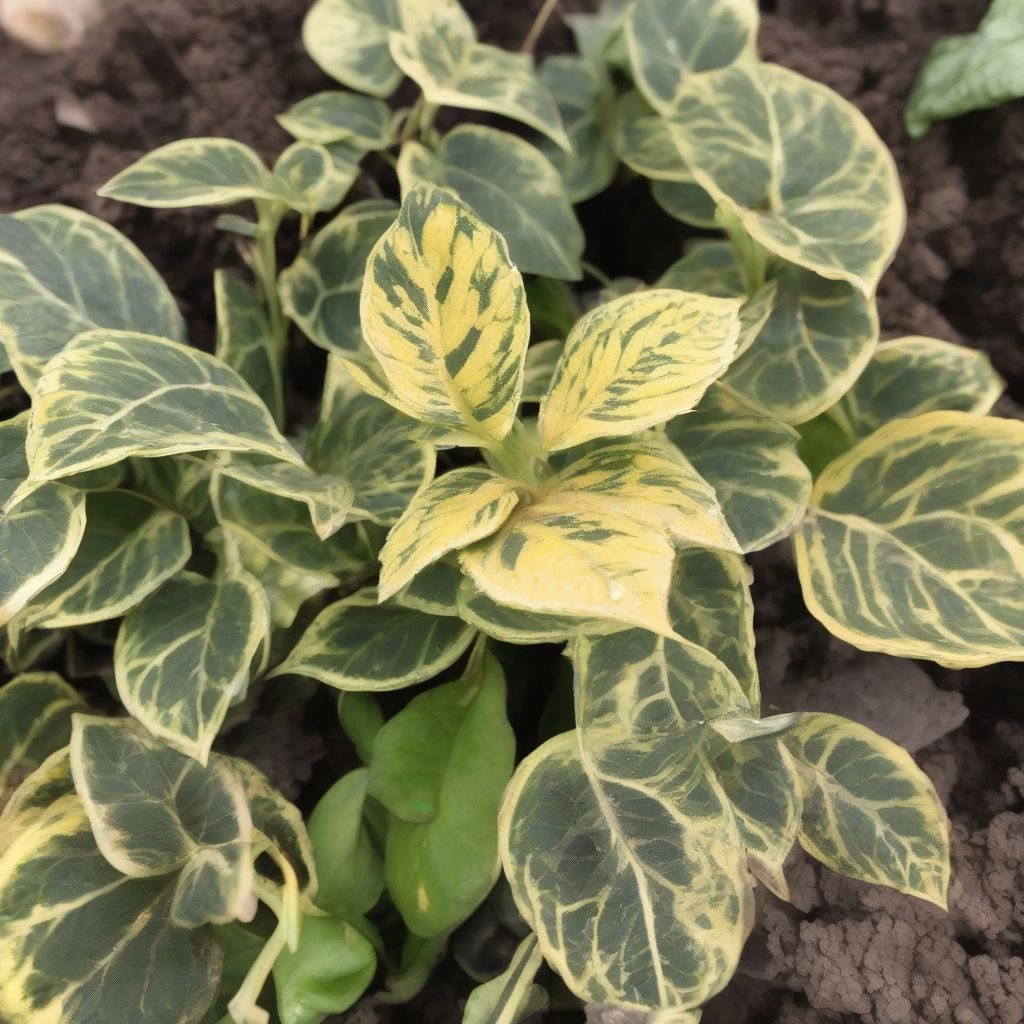Ever dreamt of a thriving organic garden bursting with vibrant, healthy plants? Achieving this dream starts with understanding your soil. Just like us, plants need a balanced diet of nutrients to flourish. So, how can you tell if your organic soil is lacking essential nutrients? Let’s dive into the fascinating world of soil health and learn how to diagnose and address nutrient deficiencies.
Understanding the Importance of Nutrient-Rich Soil
Healthy soil is the foundation of a successful organic garden. It provides the essential nutrients that plants need for growth, development, and disease resistance. When soil lacks specific nutrients, it can lead to stunted growth, yellowing leaves, poor fruit production, and increased susceptibility to pests and diseases. As a nutritionist and meal prep coach, I understand the importance of a balanced diet, and this principle applies equally to plants!
Visual Clues: Reading Your Plants
Often, the first signs of nutrient deficiencies appear on the plants themselves. These visual clues are like a plant’s way of communicating their needs. Here’s what to look for:
Nitrogen (N) Deficiency
Nitrogen is crucial for leafy green growth. A deficiency often manifests as yellowing of older leaves, starting from the bottom of the plant and progressing upwards. Growth may also be stunted.
Phosphorus (P) Deficiency
Phosphorus is essential for root development, flowering, and fruiting. A deficiency can result in stunted growth, dark green or purplish discoloration of leaves, and delayed maturity.
Potassium (K) Deficiency
Potassium plays a vital role in overall plant health, including disease resistance and water regulation. Symptoms of deficiency include yellowing and browning of leaf margins, weak stems, and reduced fruit size.
Magnesium (Mg) Deficiency
Magnesium is a key component of chlorophyll, the pigment that gives plants their green color. A deficiency often appears as interveinal chlorosis (yellowing between the leaf veins) on older leaves, while the veins themselves remain green.
Calcium (Ca) Deficiency
Calcium is important for cell wall development. A deficiency can lead to distorted new growth, blossom end rot in tomatoes and peppers, and tip burn in lettuce.
 Diagnosing Nitrogen Deficiency in Organic Soil
Diagnosing Nitrogen Deficiency in Organic Soil
Soil Testing: A Scientific Approach
While visual cues can be helpful, they don’t always provide a definitive diagnosis. Soil testing offers a more precise way to determine nutrient levels. Several options are available:
DIY Soil Test Kits
These kits provide a quick and affordable way to get a general idea of your soil’s nutrient content. They’re readily available at garden centers and online.
Professional Soil Testing
For a more comprehensive analysis, consider sending a soil sample to a professional lab. They can provide detailed information on nutrient levels, pH, and organic matter content.
Addressing Nutrient Deficiencies Organically
Once you’ve identified the deficiencies, you can take steps to replenish your soil naturally:
Compost
Compost is a gardener’s best friend! It adds essential nutrients, improves soil structure, and enhances water retention. Think of it as a balanced meal for your soil.
Cover Crops
Cover crops, like legumes, can fix nitrogen in the soil, reducing the need for synthetic fertilizers.
Organic Fertilizers
Choose organic fertilizers specifically formulated to address the identified deficiencies. Look for options like bone meal for phosphorus, kelp meal for potassium, and Epsom salts for magnesium.
Crop Rotation
Rotating crops helps prevent nutrient depletion and reduces the risk of soilborne diseases. It’s like meal prepping for your garden – planning ahead ensures a diverse and balanced nutrient supply.
Preventing Nutrient Deficiencies
Prevention is always better than cure. Here are some proactive steps to maintain nutrient-rich soil:
Regular Soil Testing
Just like regular health checkups, periodic soil testing can help you stay on top of your soil’s nutrient levels.
Balanced Fertilization
Apply organic fertilizers proactively to ensure your soil has a consistent supply of essential nutrients.
Healthy Soil Practices
Practices like no-till gardening, mulching, and composting help build healthy soil that retains nutrients more effectively. “As a nutritionist, I always emphasize the importance of a balanced diet,” says Dr. Jane Doe, a leading expert in soil health. “The same principle applies to plants. Healthy soil, healthy plants.”
Case Study: Reviving a Nutrient-Deficient Garden
In my experience as a meal prep coach, I’ve seen firsthand how planning and preparation lead to success. This principle translated directly to my own garden. Last year, my tomato plants were struggling with stunted growth and yellowing leaves. A soil test revealed a nitrogen deficiency. By incorporating compost and a nitrogen-rich organic fertilizer, I was able to revive my plants and enjoy a bountiful harvest.
 Organic Garden Thriving After Nutrient Deficiency Correction
Organic Garden Thriving After Nutrient Deficiency Correction
Conclusion
Identifying and addressing nutrient deficiencies in organic soil is crucial for a healthy and productive garden. By learning to read your plants, utilizing soil testing, and implementing organic solutions, you can create a thriving ecosystem that nourishes your plants and rewards you with a bountiful harvest. Remember, just like our bodies, plants thrive on a balanced diet. So, invest in your soil’s health, and it will repay you tenfold. Share your experiences with soil health in the comments below! What are your favorite methods for maintaining nutrient-rich soil?



